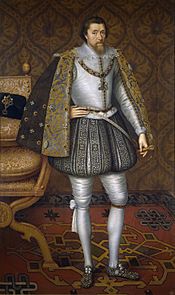Peter Lombard (archbishop of Armagh) facts for kids
Quick facts for kids Styles ofPeter Lombard |
|
|---|---|
 |
|
| Reference style | The Most Reverend |
| Spoken style | Your Grace or Archbishop |
Peter Lombard (born around 1555 in Waterford, Ireland – died 1625 in Rome) was an important leader in the Roman Catholic Church in Ireland. He held the significant roles of Archbishop of Armagh and Primate of All Ireland during a time of big changes for the church, known as the Counter Reformation.
Contents
Early Life and Education
Peter Lombard came from a respected and wealthy family in Ireland. Many of his relatives were important figures, like mayors of Waterford or judges. Some were also famous writers.
Peter started his education in Waterford. Later, he went to Westminster School in England. One of his teachers there was a famous historian named William Camden. Peter was a very good student. He was known for being gentle and eager to learn.
After Westminster, Peter studied at Oxford University. He then moved to Louvain in Belgium. There, he studied philosophy and religion with great success. He earned a special degree called Doctor of Divinity and became a priest. He later became a professor of theology at Louvain University. His wide knowledge quickly made him well-known.
Becoming Archbishop of Armagh
In 1594, Peter Lombard became a church leader in Cambrai. A few years later, he traveled to Rome. The Pope at the time, Clement VIII, was very impressed by Peter's learning and strong faith. In 1601, the Pope chose him to be the Archbishop of Armagh in Ireland. This made him the top Catholic leader for all of Ireland.
The Pope also made Peter his personal assistant. This helped Peter get an income, as it was very difficult to get money from Armagh at that time due to laws against Catholics. Because of these laws, Peter Lombard lived in Rome until he died. He could not return to Ireland. If he had gone back, he would have faced serious danger.
King James I of England did not like Peter Lombard. The King even spoke against him in the English Parliament. This meant that Armagh did not have a Catholic archbishop living there for almost 25 years. However, a man named David Rothe acted as the church's administrator in Armagh.
Important Writings and Work
While in Rome, Peter Lombard wrote a book called De Regno Hiberniae sanctorum insula commentarius. This book was about Ireland. King Charles I of England was very upset by it. He even told his leader in Ireland, Strafford, to make sure the book was not read.
In 1622, Pope Gregory XV asked Peter Lombard to join a special group. This group was looking into the work of a priest named Fr. Roberto De Nobili. De Nobili was a missionary in India who used local customs in his work. Peter Lombard led this group. His work helped the Church understand new ways to share Christianity while respecting different cultures. This was a very important step for the Church's missions around the world.
Peter Lombard also wrote a small book about the Sacrament of Penance. In 1604, he wrote another work for King James I. In this writing, he argued for religious freedom for the Irish people.
In Stories and Plays
Peter Lombard is an important character in the play Making History by Brian Friel. In the play, he is shown as an advisor to the Earl of Tyrone and also as his official historian. The play suggests that historians can "make" history. This means they might write about what they wanted to happen, rather than exactly what did happen. For example, in the play, Lombard tries to remove details about Tyrone's marriage to Mabel Bagenal from history. This is because her English background and her family's dislike of Tyrone did not fit the heroic image Lombard wanted to create for Tyrone.
 | Claudette Colvin |
 | Myrlie Evers-Williams |
 | Alberta Odell Jones |


